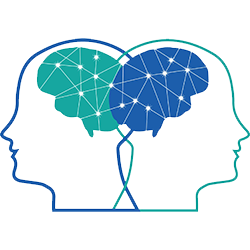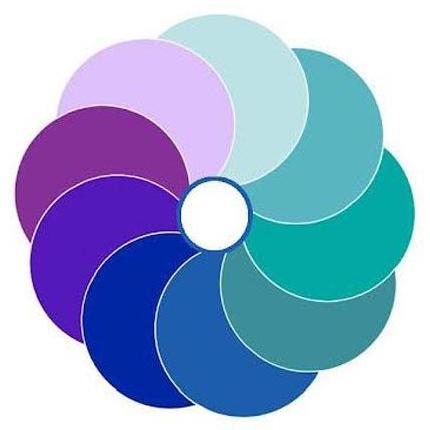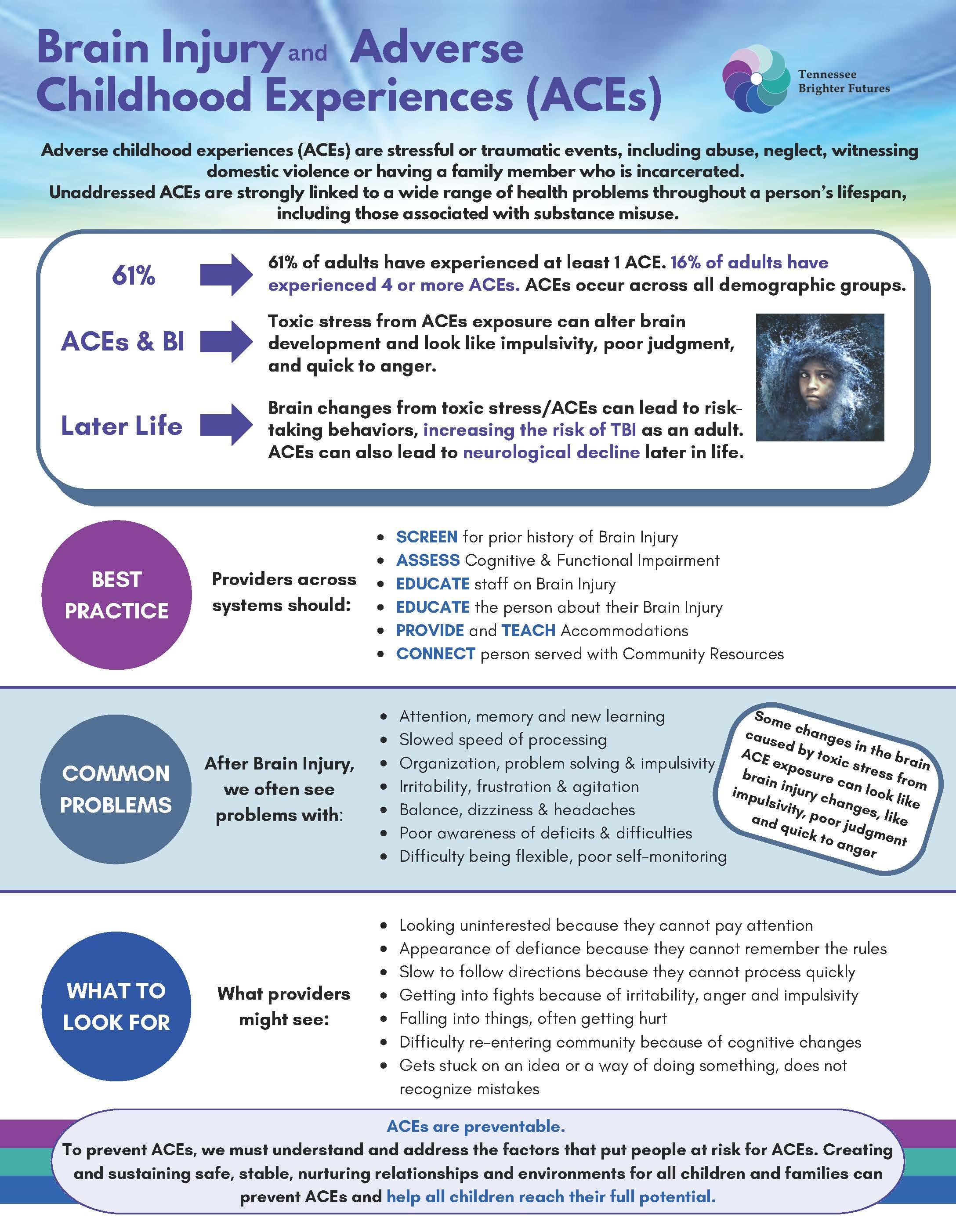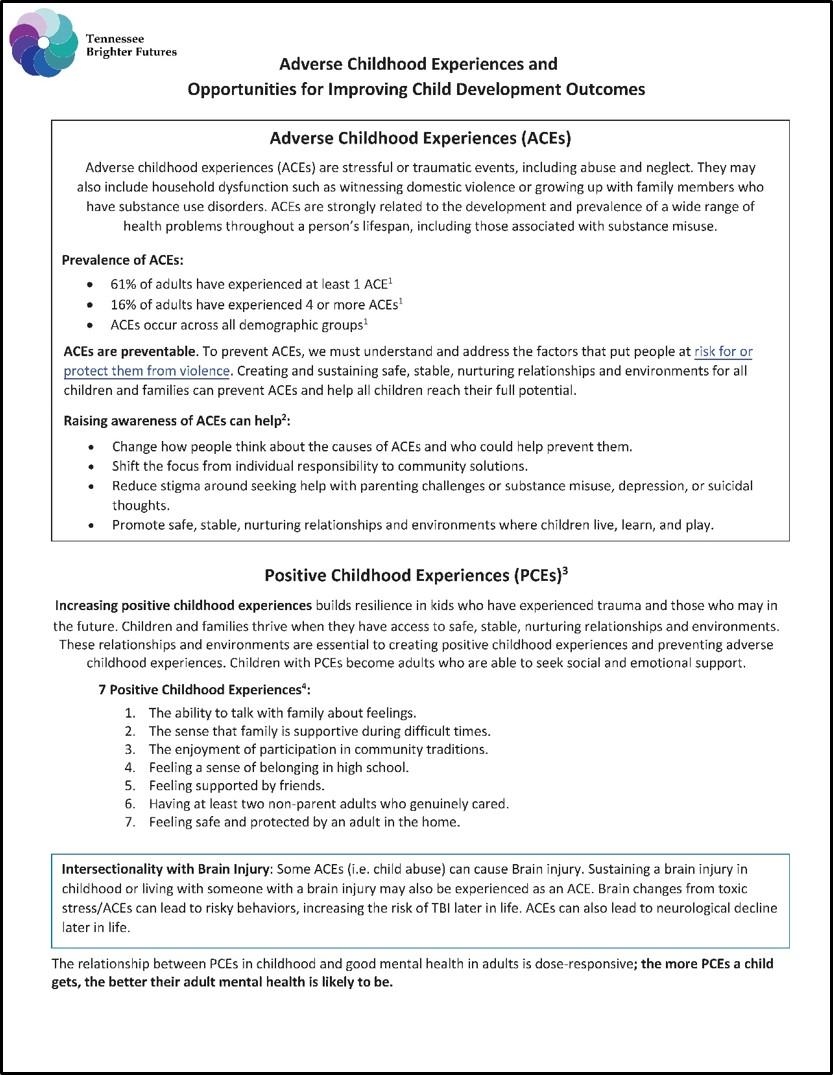ABOUT ACE & PCE
Adverse Childhood Experiences (ACEs): Adverse childhood experiences (ACEs) are stressful or traumatic events, including abuse and neglect. They may also include household dysfunction such as witnessing domestic violence or growing up with family members who have substance use disorders. ACEs are strongly related to the development and prevalence of a wide range of health problems throughout a person’s lifespan, including those associated with substance misuse.
Prevalence of ACEs:
- 61% of adults have experienced at least 1 ACE1
- 16% of adults have experienced 4 or more ACEs1
- ACEs occur across all demographic groups1
ACEs are preventable. To prevent ACEs, we must understand and address the factors that put people at risk for or protect them from violence. Creating and sustaining safe, stable, nurturing relationships and environments for all children and families can prevent ACEs and help all children reach their full potential.
Raising awareness of ACEs can help:
- Change how people think about the causes of ACEs and who could help prevent them.
- Shift the focus from individual responsibility to community solutions.
- Reduce stigma around seeking help with parenting challenges or substance misuse, depression, or suicidal thoughts.
- Promote safe, stable, nurturing relationships and environments where children live, learn, and play.
Positive Childhood Experiences (PCEs):
Increasing positive childhood experiences builds resilience in kids who have experienced trauma and those who may in the future. Children and families thrive when they have access to safe, stable, nurturing relationships and environments. These relationships and environments are essential to creating positive childhood experiences and preventing adverse childhood experiences. Children with PCEs become adults who are able to seek social and emotional support.
7 Positive Childhood Experiences:
- The ability to talk with family about feelings.
- The sense that family is supportive during difficult times.
- The enjoyment of participation in community traditions.
- Feeling a sense of belonging in high school.
- Feeling supported by friends.
- Having at least two non-parent adults who genuinely cared.
- Feeling safe and protected by an adult in the home.
Intersectionality with Brain Injury: Some ACEs (i.e. child abuse) can cause Brain injury. Sustaining a brain injury in childhood or living with someone with a brain injury may also be experienced as an ACE. Brain changes from toxic stress/ACEs can lead to risky behaviors, increasing the risk of TBI later in life. ACEs can also lead to neurological decline later in life.
The relationship between PCEs in childhood and good mental health in adults is dose-responsive; the more PCEs a child gets, the better their adult mental health is likely to be.
ACEs/PCEs Information & Resources
Caution: The ACEs screening tools below contain questions regarding sensitive topics. It is recommended that screening for ACEs be done in a safe environment with professional or appropriate support persons immediately available.
ACE Questions with Some Background Information:
Other ACEs/PCEs Resources:
- Adverse Childhood Experiences (ACEs) (cdc.gov)
- Resilient TN Collaborative: Building Strong Brains
- TN Early Intervention System (TEIS at tn.gov)
- PACEs Connection Resource Center Home - PACEs Connection Resource Center - LibGuides at PACEs Connection
- ACE Fundamentals | ACEs Aware – Take action. Save lives.\
- How Brains are Built: The Core Story of Brain Development - YouTube
- Center on the Developing Child at Harvard University - YouTube
- Research About ACEs, PCEs, and Trauma Responsiveness – LibGuides at Pinetree Institute
- Tufts HOPE – Healthy Outcomes from Positive Experiences
- What ACEs and PCEs do you have? | PACEsConnection
- What Are ACEs? And How Do They Relate to Toxic Stress? (harvard.edu)
- ACES Training DCS TN.gov
Family and Child Resources
Infographic
CDC Types of ACES, Center for Disease Control and Prevention
Positive Childhood Experiences, TN Department of Health
Trainings Available
1. Preventing Adverse Childhood Experiences, VetoViolence Training from the CDC
Groups that participated in this System of Care:
Tennessee Commission on Children and Youth (TCCY)
Tennessee Department of Children’s Services (DCS)
Tennessee Early Intervention System (TEIS)
References:
- CDC Vital Signs ACES
- Fast Facts: Preventing Adverse Childhood Experiences | Violence Prevention| Injury Center | CDC
- Creating Positive Childhood Experiences | CDC
- Positive Childhood Experiences (PCEs) - Pinetree Institute







